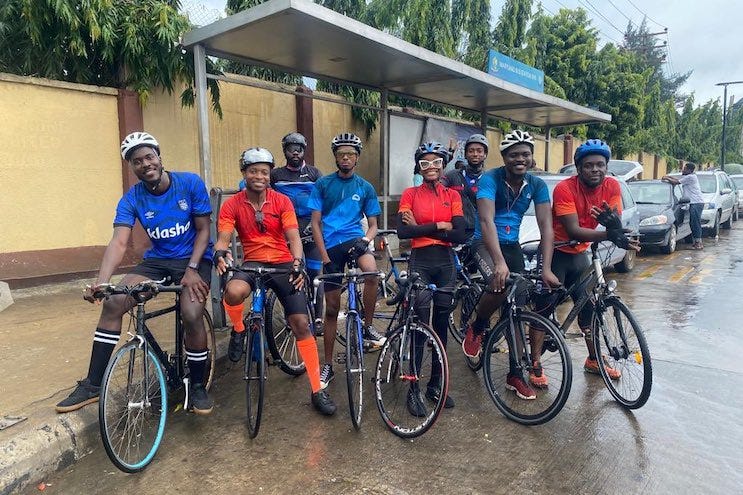What it means to cycle across Lagos
Cycling in a dense city like Lagos – without dedicated bike lanes – comes with its challenges.

After the gradual ease of the coronavirus lockdown in 2020, four friends decided to pick up their bicycles and ride across Lagos mainland on Saturdays as a means to keep fit and have fun.
For Dipo Adebowale, Desola Adesanya, Omolaso Onochie and Seun Adesanya, the weekend…
Keep reading with a 7-day free trial
Subscribe to Ikeja Record to keep reading this post and get 7 days of free access to the full post archives.




